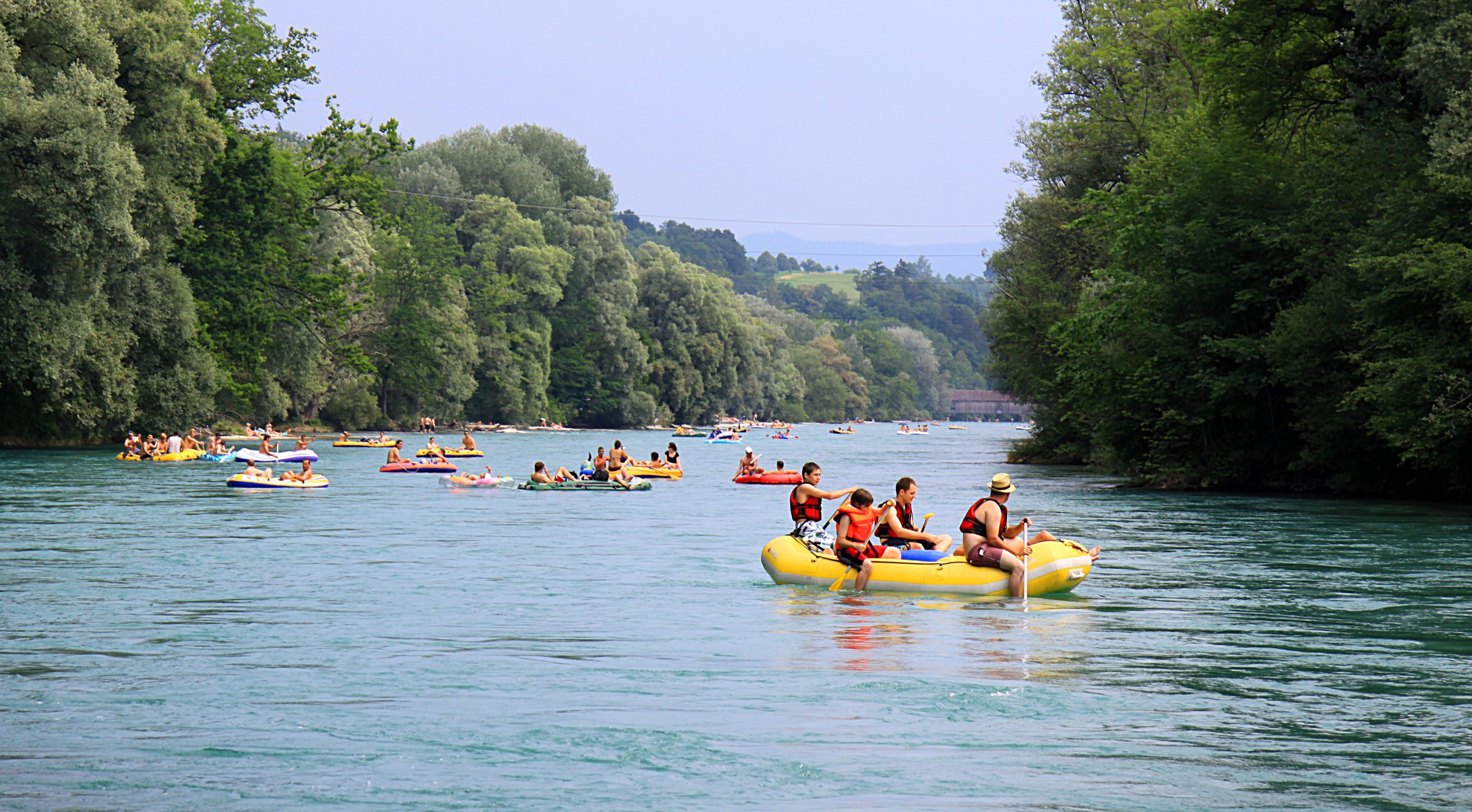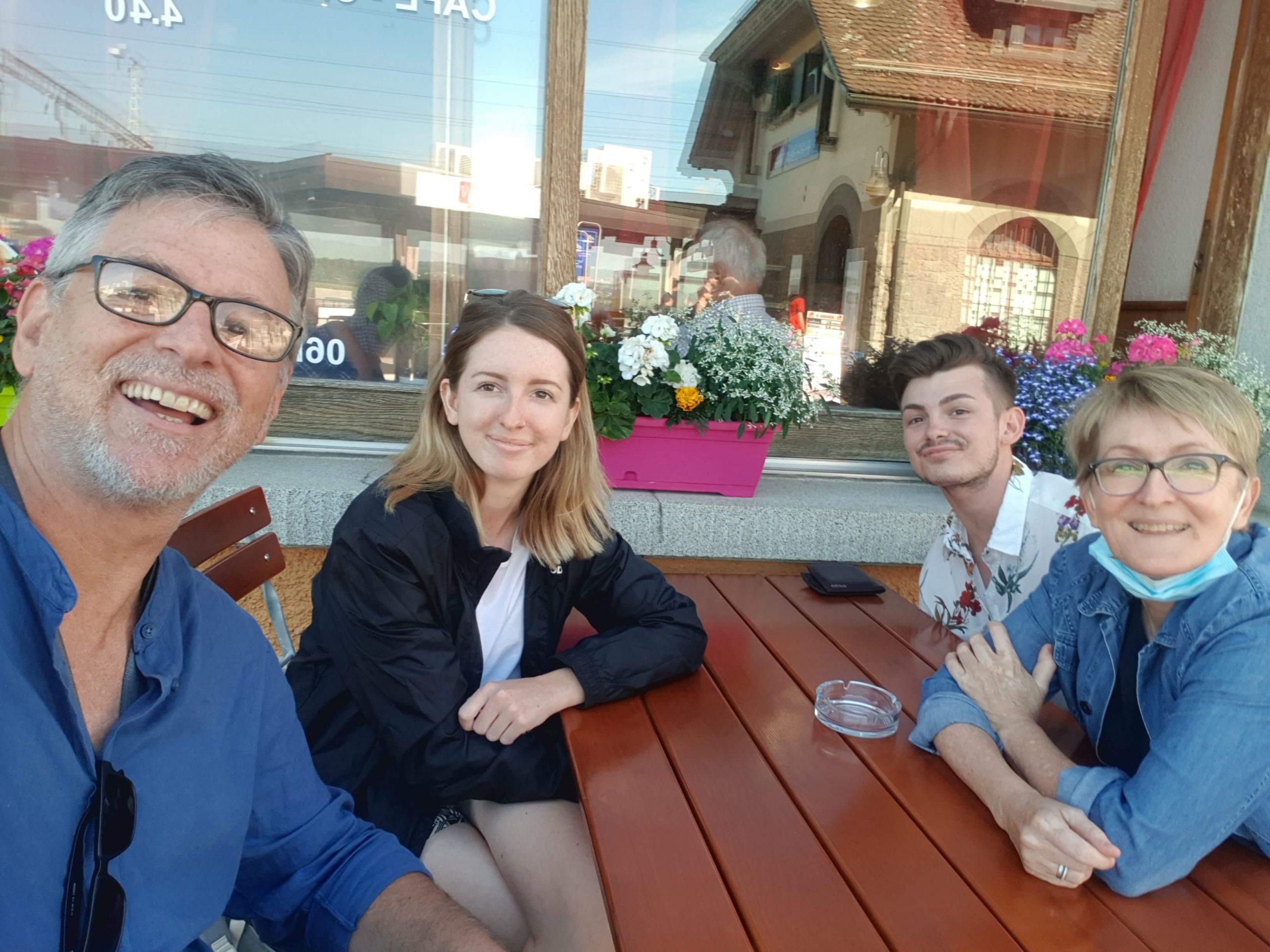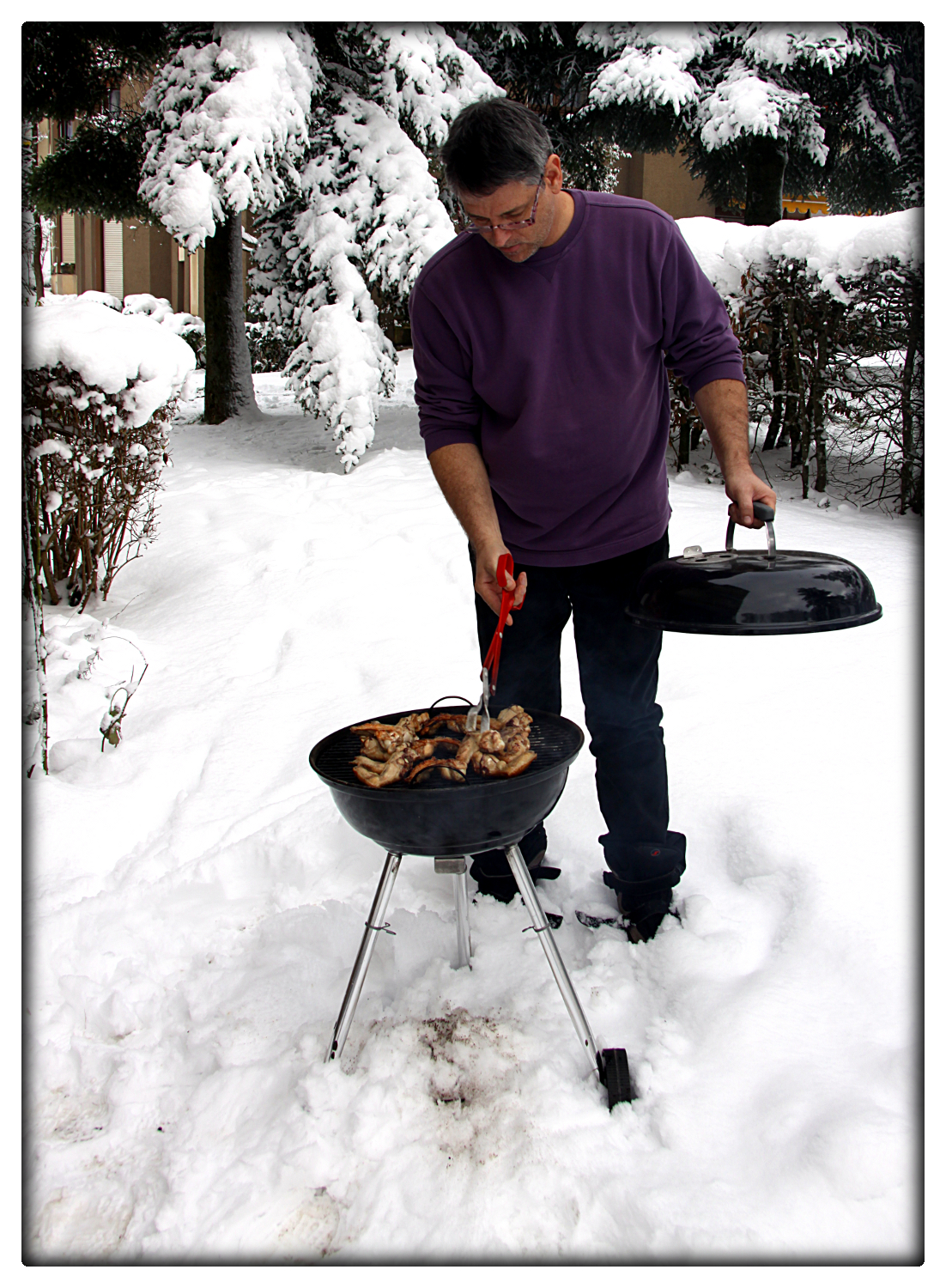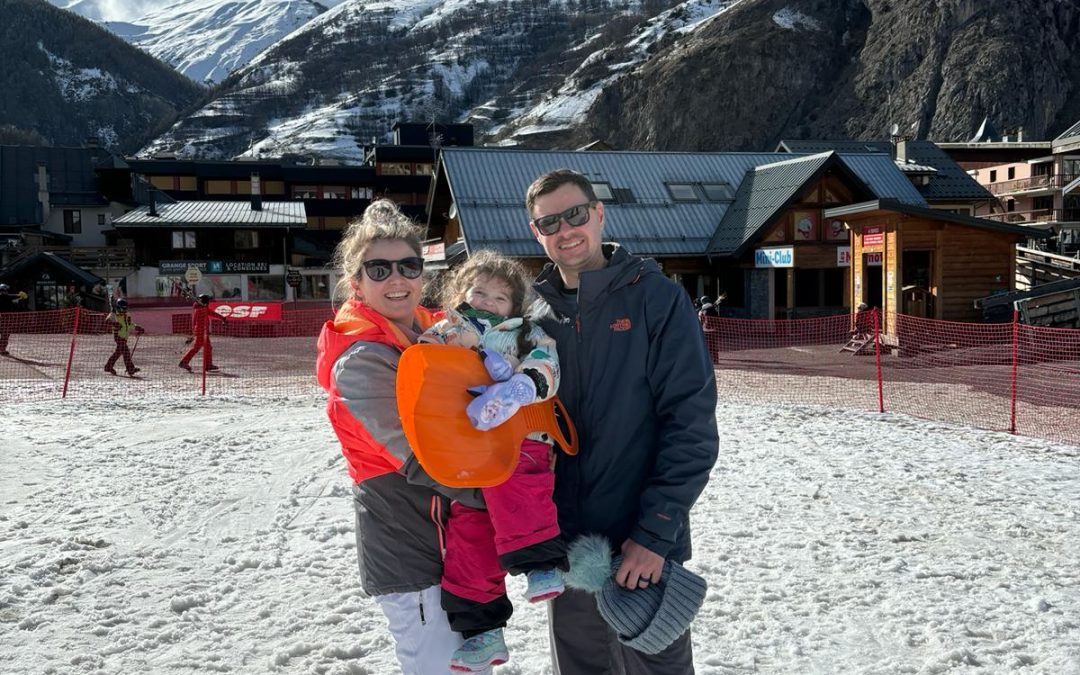Out and About is a column in which we chat with people who are currently living abroad, or who used to live and work there. This week we chat with André Duvenhage, who has lived in Ostermundigen, Switzerland for the past 20 years.
Where do you live and why?
We live in Ostermundigen, just outside the city Bern in canton Bern. I got a job offer (in IT), which is why we moved to Switzerland and live in the Bern area. Switzerland is such a small country anyway and the public transport (ÖV) so efficient that one can literally live and work anywhere. My office is currently in Yverdon (canton Vaud), but I have worked in Zürich, Visp (canton Wallis) and of course Bern.
Was it a big adjustment?
Yes, the language was an issue, but we managed to get to know High German rather quick. I still find the Bernese dialect (Bärndütsch) somewhat difficult. My wife understands it very well and my children are fluent – it is the language they use to communicate with their friends.
The first time we wanted to buy washing powder, we came home with a decalcifier …
And, of course, our family and support network were back in South Africa. We were lucky to make friends with Swiss people who are among our best friends here, even after 20 years. We also have a lot of South African friends and other expat friends from the rest of Europe, the Middle East, South America and Africa. You name it and we probably know someone that comes from there.
Tell us more about your family?
We are four – my wife Antoinette, daughter Mieke and son (and myself, obviously). We are Capetonians. I grew up in Cape Town, Antoinette in Robertson and we met in Stellenbosch. Both our children were born in Belville.
Antoinette was at home full-time for the first 14 years we were here. She started working again after the children finished school. She currently works as a caregiver for retired people who need assistance but do not want to go to an old-age home. I work in IT at Compassion (compassion.ch), a charity organisation that helps children living in poverty.
Mieke studies part-time and works part-time as an administrative officer. Naudé completed his Swiss military service a few months ago and works as a bookkeeper at City Bern.
Do you still speak Afrikaans?
All the way. It is our colloquial language with each other and with our South African friends. We speak English and German with expat friends, colleagues and the Swiss. Some of the people who have known us for a while understand some Afrikaans words by now.
Your family is far away, how often do you see each other?
We have not travelled to SA a lot lately. Our last visit was Christmas 2018 and it was wonderful, but it is hard to say when the next visit will be.
My mother tries to visit us at least once a year, but COVID-19 interfered with those plans. After more than two years she finally visited us in July this year.
Antoinette’s family (she is one of four children) also visited us a few times, but not as often as we would have liked (I will send them the link to this article).
There are quite a lot of South Africans in Bern. Do you get together sometimes?
Informally, yes. Every year, on the first Saturday in July, we have a braai on the banks of the Aare for the whole day. It is awesome and this year’s Aare braai was epic.
The invitation goes out to South Africans and other friends, and everyone is welcome to bring their friends along. This way we met many new South Africans and made good friends. I got to know one of my regular wors-making pals this way.
There are a few organisations that arrange events, but we have a nice social life which is increasing organically. We are not really interested in expanding our South African circle of friends. The people we are friends with here would have been our friends in South Africa as well. Good people are good people, regardless their country of origin and vice versa.
The strangest things to get used to?
After 20 years it is actually a difficult question … but there is something: When the Swiss braai, they don’t braai two chops, two pieces of boerewors and enough “braaibroodjies” (or pap, if that is wat you prefer) for every guest. No, they will braai two pieces of wors (cervelat, cippolata or something similar), a piece of steak (cut in pieces and shared), maybe another type of meat and vegetables (corn, baby marrow slices, etc.) for five people. I am more used to this by now, but my Swiss friends no longer do it. They braai properly now – even “braaibroodjies”.
My oldest Swiss pal is a chef and “braaibroodjies” is a standard part of his repertoire these days.
And I almost forgot: You can buy horse meat in the supermarkets and at the butchery. Just saying …
Another thing is that you don’t necessarily work 100%. Many people work only 80% or 60% and it is completely normal. For instance, I work 80% and one of my colleagues 60%. To be honest, in our family Naudé is the only one who works 100%.
Do you still have contact with people in South Africa and do you plan on returning?
Contact, yes. Returning is still a topic of discussion in our home. I doubt whether our children will return to South Africa permanently. Antoinette and I are still considering our retirement options.
Do you get the opportunity to travel?
I haven’t caught the travelling bug the way many of my friends have, but we have been to the Canary Islands, Portugal, Spain, Elba, France, the Netherlands, Belgium, England, Germany and Italy, amongst others.
The nice thing about living here is that you can for instance go to Germany for the day or to Italy for a weekend.
Another nice thing is Italian ice cream. It is about a third of the price you would pay in Switzerland, and it is delicious. My deal with Mieke and Naudé (since our first visit to Italy in 2002) is that they are allowed to eat ice cream in Italy at any time of the day – for breakfast, 11 o’clock tea, as a midnight snack, any time. Ask and you will receive.
What do you like most about your life there?
I like the ÖV (yes, I know it is a very boring answer). We haven’t owned a car for about six years and it doesn’t bother us. Between the buses, trains and mobility (short term vehicle rental) we manage to go everywhere we want.
Everything works. The majority of people here participate in the social contract – we all live here together and for that reason we can take each other into account and be considerate. It is to everyone’s benefit.
There is a music venue a few kilometres from us that sometimes hosts big names from the past. I got to see Robert Cray, Albert Hammond en Kinky Friedman there. For Bruce Springsteen I had to go to Zürich. With the ÖV.
Is it expensive to live there?
When you stop converting Franks to Rands in your head, you realise that your salary corresponds to the cost of living.
Mutton and beef are expensive. Dining out is expensive. Properties are expensive. But the everyday consumables are affordable if you earn a Swiss salary.
Switzerland is more expensive than its surrounding countries and for that reason the salaries are higher. This of course makes travelling a delight.
Was it easy to make new friends and to fit in with the community?
Our children were 4 years and 20 months old respectively when we arrived here. In our quarter there were many children from the same age. It was therefore easy to find common ground and it helped us a lot in becoming part of the community.
We also met many people through the church. We attended an English church and many of the couples there consisted of a Swiss partner and a foreigner. This way we also managed to make friends and become part of a community.
What is the biggest difference when comparing it to your life in South Africa?
You cannot simply switch on the TV on a Saturday afternoon to watch Currie Cup rugby. However, it sounds as if you can’t even do this in South Africa anymore.
I miss the coffee shops with bottomless coffee and a full English breakfast.
But the positives weigh much heavier than the negatives.
In SA I never made biltong, dry wors or anything similar. We have a group of SA friends who get together every now and then to make wors. I can make my own biltong (such as duck breast biltong which is very nice and popular among my friends) and smoked bacon (way better than bacon bought at the shop) and I brew beer, cider, ginger beer and kombucha. Just this morning I hang a few pieces of beef biltong.
We were very lucky to find a wholesale butcher in our area. Considering what we pay there, we can make wors at about 50% of the shop’s price and 5 000% of the taste.
You also feel safe here. Mieke and Naudé used to walk to nursery school and later to school. They also used the ÖV from an early age and there were never any problems. Driving home by train or bus late at night is normal.
What do you do to relax?
The old city of Bern is beautiful. On Saturdays there is a farmer’s market in front of the parliament buildings. Apart from fruit and vegetables, you can buy flowers, plants, a wide variety of mushrooms, meat products and delicious fresh bread. There is even a vendor that sells Cannabis oil. Or you can just walk around and observe what is happening around you. There are many coffee shops where you can sit to do people-watching.
The Rosengarten is another favourite. It has a beautiful view over the old city. If you walk down the hill you will reach Bern’s beer wells and the Altes Tram Depot. You can then cross the old bridge into the old city, or you can walk along the Aare for as far as you like. Whichever direction you choose, it is food for the soul.
We get together to support the Springboks from time to time. Win or lose, we will braai after the game (or before, or during, or throughout).
Sunsets on our balcony in summer is also a special time. This is usually when I realise how privileged we are.
Do you live abroad? We would like to hear from you. Send us an email to wereldwyd@afriforum.co.za.












